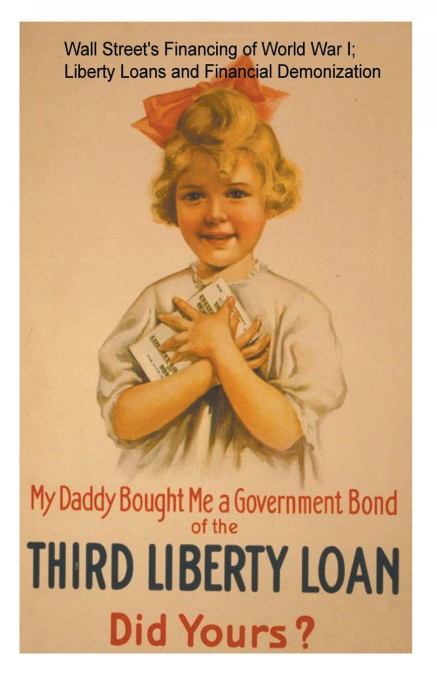
 Librería Perelló (Valencia)
Librería Perelló (Valencia)
 Librería Aciertas (Toledo)
Librería Aciertas (Toledo)
 Librería Elías (Asturias)
Librería Elías (Asturias)
 Donde los libros
Donde los libros
 El AlmaZen del Alquimista (Sevilla)
El AlmaZen del Alquimista (Sevilla)
 Librería Kolima (Madrid)
Librería Kolima (Madrid)
 Librería Proteo (Málaga)
Librería Proteo (Málaga)
World War I was a gold mine for the capitalist class. The only problem was that they did not want to pay the entire war cost themselves. The banking plutocrats created the Liberty Loan programs to pass much of that cost along to the underclasses – five in total from 1917 to 1919. An intense campaign was put in motion to sell the bonds, perhaps the most significant public relations campaign to that time. Those who refused to buy any bonds or less than their "fair share" were demonized by the capitalist class as "financial slackers." Such individuals were attacked in the media by all the opinion makers of the day. No excuse for not buying was acceptable. It was a program crafted exclusively by the banking plutocracy, the United States Treasury Department bureaucrats, and administered by the newly created Federal Reserve banking system. The bond program was unnecessary since the ruling class could easily have paid the total cost, with almost enough money in liquid bank deposits alone. In all the discussions about how to raise money for the war, there was never any mention of some wealth tax; it was there the majority of money of the capitalist class was to be found, not from "income" as usually defined. Resistors to buying the bonds were often subject to summary dismissal from their jobs, tarred and feathered, and ridden out of town on a rail. Those who declined to purchase bonds were ruthlessly attacked by naming, shaming, force, and coercion. No one had a good word to say about those who declined to purchase bonds; dissent was not allowed.